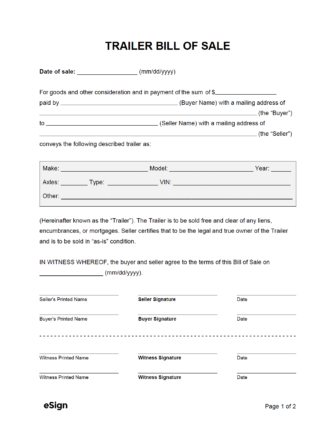

A trailer bill of sale contains pertinent information that proves a person or company paid money to acquire a pull-behind vehicle. Like automobiles, state law often requires trailers to be registered if they will be used on public roads. During registration, the DMV will require proof of ownership, which the bill of sale form provides.
The form can be used for trailers of all makes, models, and sizes, including those that carry commercial equipment, boats, cars, ATVs, snowmobiles, motorcycles, landscaping tools, cattle, and more.
A trailer bill of sale is a transactional document that serves as evidence of ownership of a trailer. It is completed and signed following a buyer’s payment to the seller. It contains three (3) major sections; 1) identification of the parties and the sale price, 2) information on the trailer, 3) and each party’s signature. The buyer should keep the bill of sale for their records; a copy can be made and retained by the seller as well.
Yes, most states require street-legal trailers to be registered. In order to complete registration, the owner needs to prove their ownership with a bill of sale form. If a buyer will be using the trailer on private property only, a bill of sale is not required.
The process and requirements for registering a trailer are state-specific. While one state may require boat trailers to be registered, another state (like Alabama), may not. Head to the state’s DMV website to find out what is required for the registration process. Once the buyer obtains the bill of sale after paying for the trailer, they will need to complete the following steps:
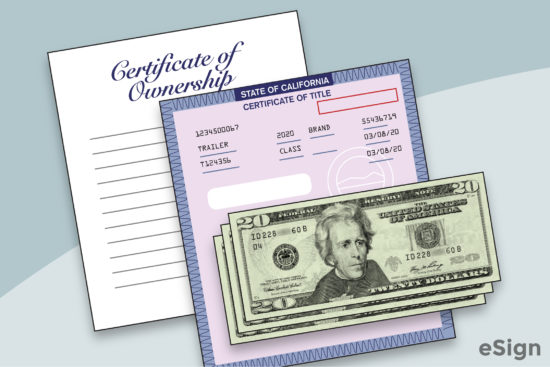
The individual registering will need to show proof of ownership, produce the title (if applicable), and pay the associated fees.
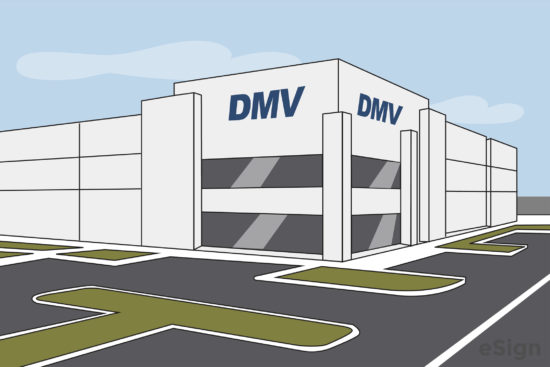
Go online to locate the nearest DMV. There is typically at least one office in every county.
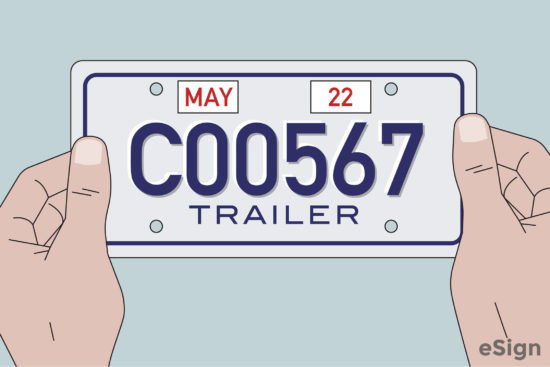
The fee will range anywhere from $5 to $25+ dollars, depending on the type of trailer and whether it is used for personal or commercial hauling. Credit cards are not always accepted – bringing cash is recommended. After paying, the registrant will be given a plate. Attach it to the trailer in a way that is clearly visible and doesn’t obstruct brake or back-up lights.

The buyer will need to renew their trailer registration on a regular basis. The timeframe for renewals is dependent on the state or county. Some mandate annual registration, while others have bi-annual requirements. After the first in-person registration, subsequent registrations can often be completed online.
Enter the following information in accordance with the numbered guide in the image below:
The grey area in the middle of the form is where the details of the trailer need to be included. The most important info is the VIN number, as this is a completely unique number to each trailer.
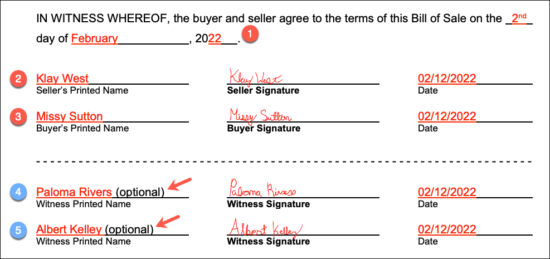
The last page (notarization), is optional unless required for registration. Check the local DMV requirements prior to signing.
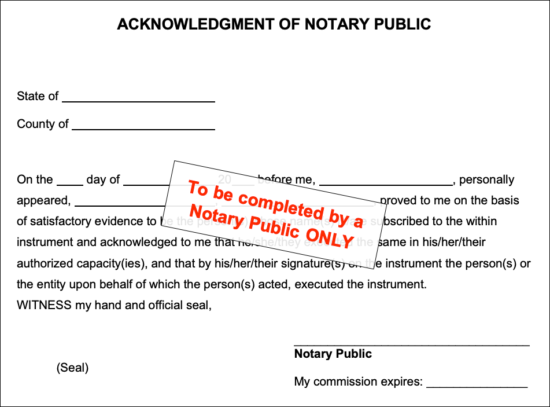
This is an example of a completed trailer bill of sale. All included information is fictitious.